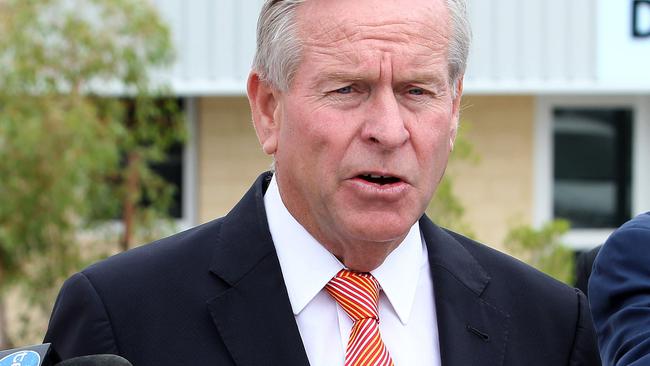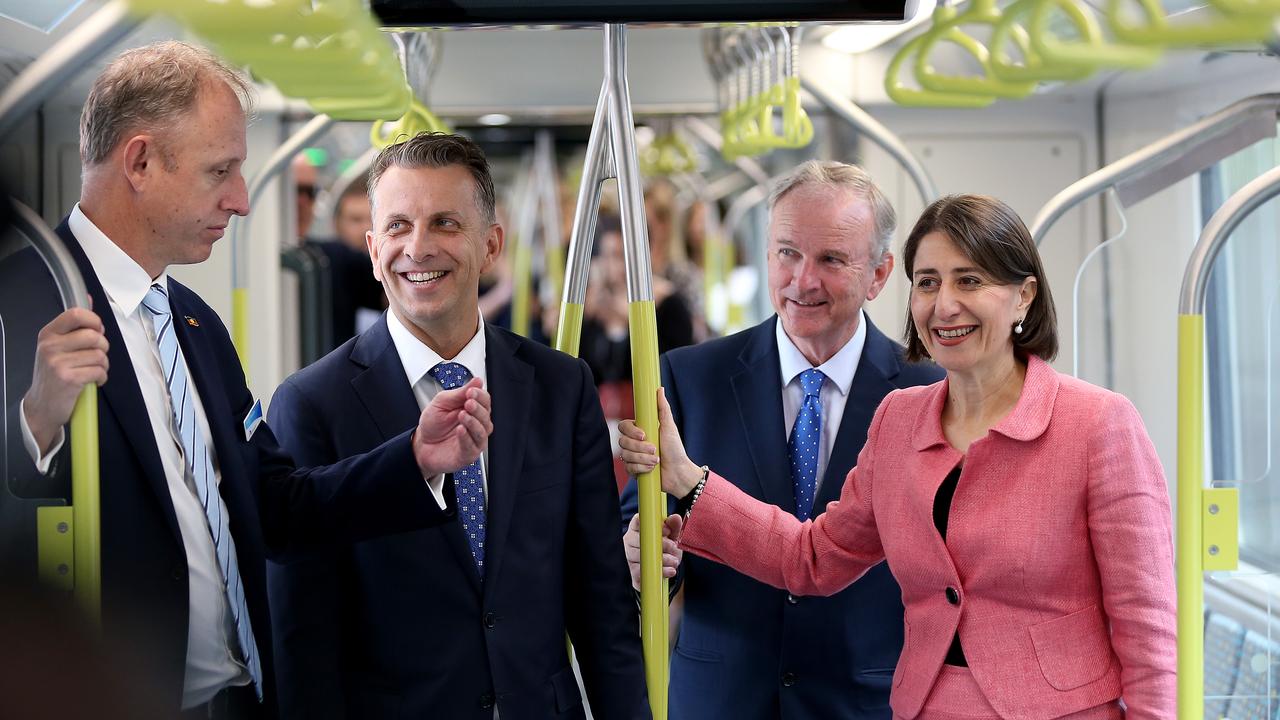WA election: BHP and Rio go on mine tax attack
WA’s Liberal-National government is in an election campaign brawl with miners over a proposed royalties increase.

Western Australia’s Liberal-National government is in an election campaign brawl with miners over a proposed multi-billion-dollar royalties increase as Premier Colin Barnett seeks a third term.
On his first full day of campaigning yesterday, Mr Barnett began with a rebuke for the mining sector over what he called its “huge media campaign” against Nationals leader Brendon Grylls in his safe seat of Pilbara — the miners’ response to Mr Grylls’s proposal to extract an extra $7.2 billion from Rio Tinto and BHP Billiton over four years.
Mr Barnett has said he does not agree with Mr Grylls’s proposal, hatched last year to deal with state debt, and a government he leads would not implement it if it were re-elected on March 11. Mr Barnett has unsuccessfully sought a compromise one-off payment in lieu of the royalty rise.
However, as Mr Barnett defended Mr Grylls yesterday against the mining industry’s advertising campaign, the Labor opposition swiftly claimed it was proof that, if re-elected, Mr Barnett would do a deal with his coalition partner to allow some form of royalties hike.
“I’m not very pleased with the way the mining industry has campaigned against Brendon. I don’t know what they’re up to,” Mr Barnett said. “They’re running a huge campaign. They’re entitled to do it. I’m just saying, as the Premier of Western Australia running a Liberal-National government, I’m not pleased with that.”
BHP Billiton, Rio Tinto and the Chamber of Minerals and Energy all reacted strongly to Mr Barnett’s criticism, describing its advertising campaign against Mr Grylls’s tax as justified given the amount of tax the companies pay already and the economic cost of an additional $5-a-tonne impost.
“The CME has an obligation to inform the community about the job-destroying mining tax proposal. The WA Nationals’ iron ore tax will cost 3400 WA jobs — almost 3000 of those in the Pilbara alone — cut investment in the state and make our already poor share of GST even worse,” a council spokesman said.
“We would prefer not to be in this position but Mr Grylls and the WA Nationals made it very clear before the election campaign that they wanted to attack the mining industry as part of a political strategy. This left the industry with no option but to publicly oppose the tax plan.
“The state government showed in its mid-year financial projections that it is relying on the iron ore industry to do the heavy lifting in pulling WA out of deficit, with an extra $3.7 billion projected to be added to the state budget as a result of our miners. The WA Nationals mining tax proposed by Brendon Grylls is the single biggest economic threat WA faces.”
Mr Grylls told The Australian he could not back down over his proposed tax, saying even Rio Tinto and BHP employees in his electorate agreed with him that the companies were not investing enough in the communities where they made healthy profits.
He accused BHP Billiton of telling its staff how to vote by displaying anti-mining-tax ads on their computers and in staffrooms.
BHP Billiton hit back, describing Mr Grylls’s planned royalty increase as “a reckless tax proposal ... (that) would cost jobs, threaten investment and harm communities in the Pilbara”.
WA Labor’s Treasury spokesman Ben Wyatt described the proposed mining tax as a government proposal, not a Nationals wish.
“We have the most efficient mining sector in the world in my view, but its margins when we compete with other countries like Brazil is small,” Mr Wyatt said.
“We need to protect the industry that employs Western Australia. Mr Barnett is committed to some form of tax and no doubt that is why he is fretting about the ads.’’



